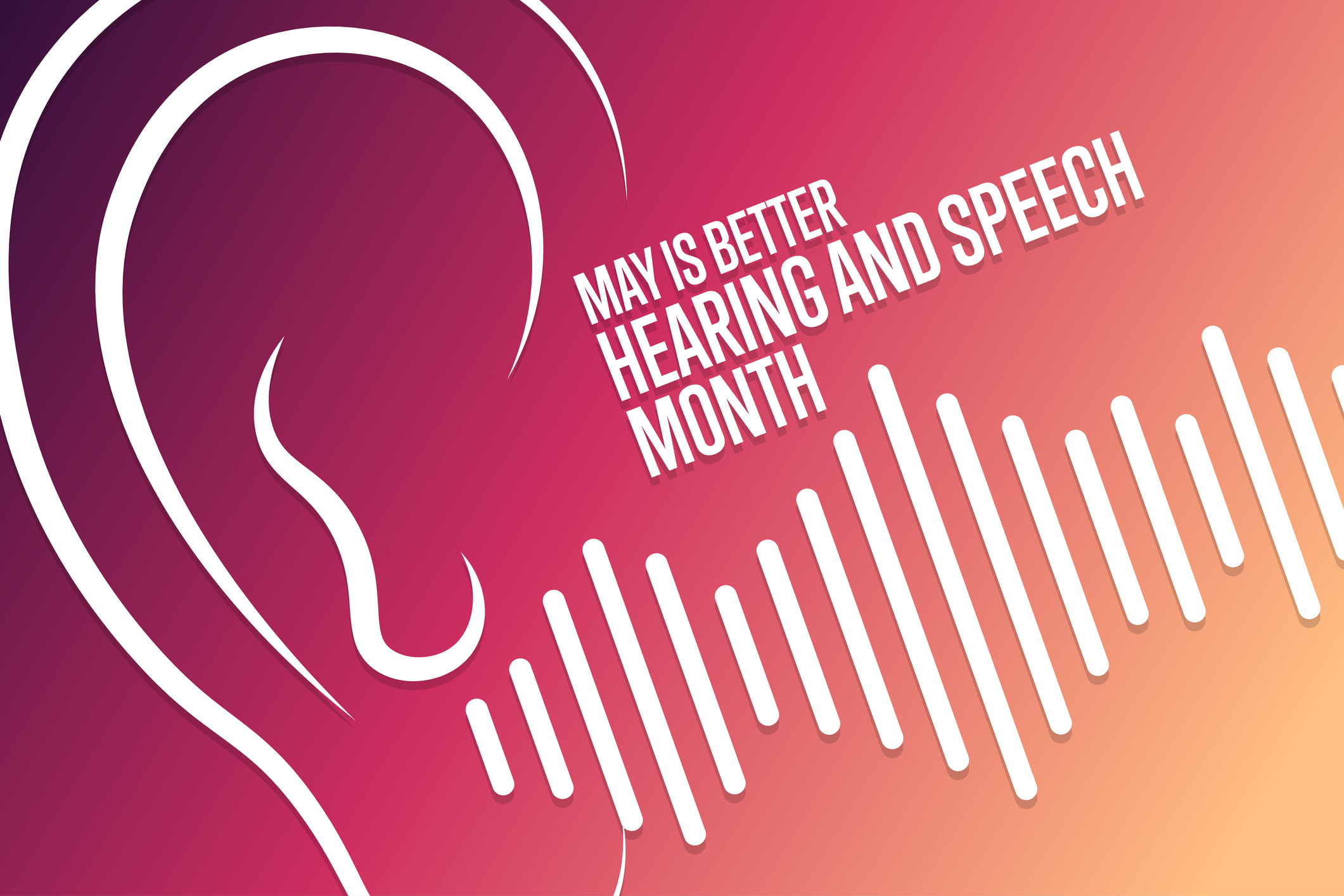Recent research has revealed the significant impact social isolation can have on the health and wellbeing of older adults. But often, even in a room crowded with friends and family, seniors can feel isolated because hearing or speech problems prevent them from participating in conversations and feeling included. Hearing issues can also lead to difficulty understanding a doctor’s advice, and responding to weather warnings, doorbells, or alarms.
May is Speech and Hearing Awareness Month which provides an opportunity to share information about speech and hearing care, and the importance of being able to communicate with others to stay socially connected. According to the National Institute on Aging, about 1 in 3 adults between 65 and 74 have hearing loss, and nearly half of seniors over 75 have difficulty hearing.
Beginning in their 40s, many adults notice they have trouble understanding what people are saying in a crowded, noisy setting. The problem may gradually worsen over the years before hearing loss is significant and receives a diagnosis. Age-related hearing loss can also lead to difficulty understanding, focusing, and recalling information from conversations. It can be frustrating for people with hearing impairment when it seems like people are mumbling or not trying to speak up.
According to a recent McMaster Optimal Aging Portal Blog post, there are three different types of age-related hearing loss. Type 1 involves damage to the sensory receptors in the inner ear, and type 2 involves changes in the blood supply to the inner ear. Type 3 hearing loss involves damage to the nerves connecting the ear to the brain.
Speech problems among older adults resulting from a stroke or head injury can also lead to difficulty listening, understanding, speaking, reading, and writing. Although language difficulties (aphasia) can also be frustrating for the individual, speech and language therapy can help older adults recover and function better.
Hearing changes among older adults can be helped with proper diagnosis by a hearing health professional who can offer advice about technologies, communication behaviors, and environmental modifications. Untreated hearing problems can lead to depression and a greater risk of developing dementia.
Learn more by following this link to the American Speech-Language-Hearing Association website. In Canada follow this link to Speech-Language and Audiology Canada. Stay tuned for more information about the new Food and Drug Administration category for over-the-counter hearing aids to improve access and lower costs for adults with mild to moderate hearing loss. Sales of these devices that can be set up, tuned, and adjusted at home are expected to begin by the end of 2022.






Add Your Voice
0 Comments
Join the Discussion